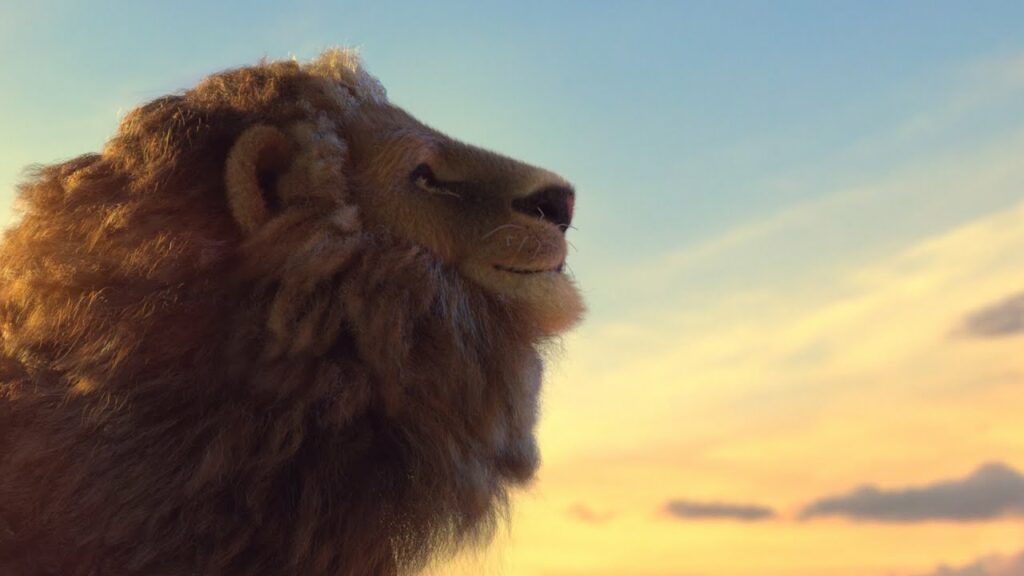The Bitter Bond Award-winning Short Film by Born Free Foundation
The Bitter Bond Award-winning Short Film by Born Free Foundation

Help us ensure South Africa’s lions are born free and stay wild: https://www.bornfree.org.uk/great-betrayal
Most lions in South Africa are born and raised in captivity. Keepers charge tourists to hug and take photos with them. Then, when they grow too big for cuddles, they’re sold to trophy hunters and shot in private game reserves. Not only is this cruel and inhumane practice legal, but it’s flourishing in South Africa.
We want to stop it.
The Bitter Bond Award-winning Short Film by Born Free Foundation
Sign the petition to the South African government to end lion farming for good. https://www.bornfree.org.uk/great-betrayal
The lion is a huge cat belonging to the Panthera genus that can be found in Africa and India. It has a muscular physique with a deep chest, a short, rounded head, round ears, and a hairy tuft at the tail’s end. It is sexually dimorphic, with adult male lions being larger and having a prominent mane than females. It is a sociable animal that organises itself into prides. The pride of a lion is made up of a few adult males, related females, and cubs. Female lions often hunt in packs, preying primarily on huge ungulates. Although some lions scavenge when opportunities present themselves and have been known to hunt humans, the lion is an apex and keystone predator.
The lion prefers grasslands, savannas, and shrublands to call home. It is more diurnal than other wild cats, although when hunted, it adapts to being active at night and in the twilight. The lion once roamed over Africa, Southeast Europe, the Caucasus, and Western and South Asia during the Neolithic period, but it has since been reduced to scattered populations in Sub-Saharan Africa and a single population in western India. It has been classified as Vulnerable on the IUCN Red List since 1996, owing to a population drop of roughly 43% across African countries since the early 1990s. Outside of specified protected areas, lion numbers are unsustainable. Despite the fact that the reason of the reduction is unknown, habitat loss and conflicts with humans are the most pressing concerns.
The lion has been widely featured in sculptures and paintings, on national flags, and in contemporary films and literature as one of the most widely recognised animal emblems in human civilization. Lions have been maintained in menageries since the Roman Empire, and they have been a popular species for exhibition at zoological gardens all over the world since the late 1800s. Lions were prominent in Ancient Egypt’s cultural portrayals, and they have appeared in practically all ancient and mediaeval cultures throughout the lion’s historic and contemporary range.
🐯 SUBSCRIBE FOR MORE VIDEOS: https://bit.ly/2HWICJV
Help Lions of Lyon find a new home: https://www.bornfree.org.uk/lions-of-…
Adopt: https://www.bornfree.org.uk/adopt
See how you can save a life: https://bit.ly/2KunPz1
Donate: https://www.bornfree.org.uk/donate
King’s success story: https://bit.ly/2KzgY7v
The Born Free story: https://www.bornfree.org.uk/our-history
Our campaigns: https://www.bornfree.org.uk/take-action
Where we work: https://www.bornfree.org.uk/where
🐘 FOLLOW BORN FREE:
▶ Instagram: https://www.instagram.com/bornfreefou…
▶ Facebook: https://www.facebook.com/bornfreefoun…
▶ Twitter: https://twitter.com/BornFreeFDN
▶ LinkedIn: https://www.linkedin.com/company/the-…
© Born Free Foundation. Any reproduction or illegal distribution of this content in any form will result in immediate action against the person/companies concerned.
For enquiries, please contact Born Free here: https://www.bornfree.org.uk/contact
#TheBitterBond #Awardwinning #ShortFilm by #BornFreeFoundation #lions #savethelions #wwf
Follow us for New Content Daily
Web – www.epicheroes.com
Twitter @epicheroes
Insta @epicheroesuk
http://www.youtube.com/c/Epicheroes
 Epic Heroes Entertainment Movies Toys TV Video Games News Art Pop culture news goodness
Epic Heroes Entertainment Movies Toys TV Video Games News Art Pop culture news goodness


